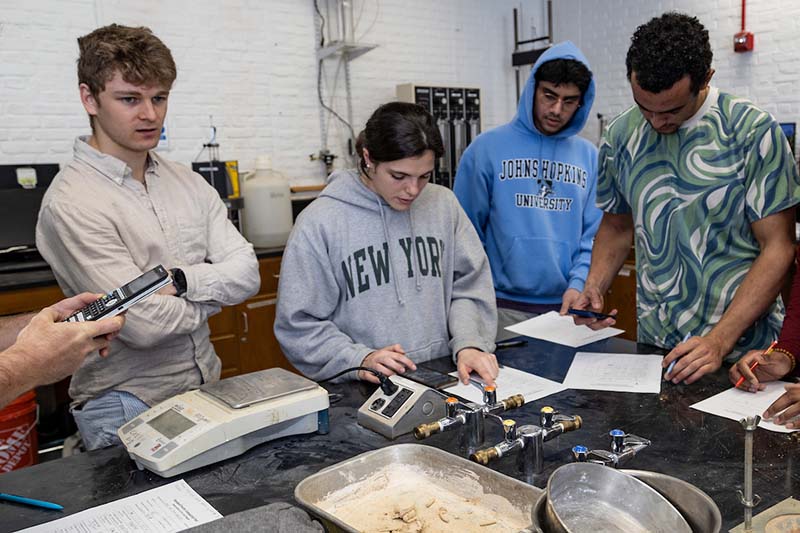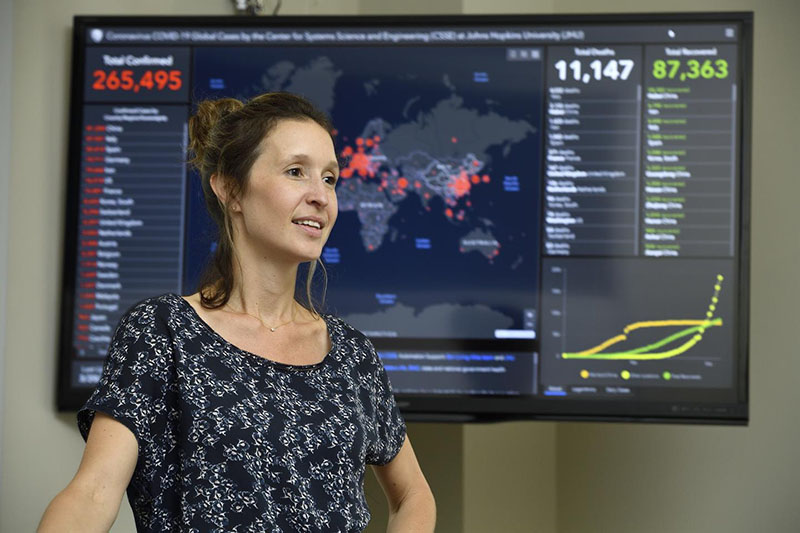Get Free Program Info
Brochure, application tips, open house invites, deadline reminders, and more!
We respect your privacy. Submitting this form constitutes your express written consent to receive emails, phone calls, text messages and/or other media from Johns Hopkins University at the phone number(s) or email(s) received, including a wireless number(s). These emails, texts, calls, or other media may be generated using automated technology. You may opt out of receiving any of these communications at any time. You are not required to provide this consent to receive services from Johns Hopkins University.
Nationally Ranked
One of U.S. News & World Report’s Best Graduate Programs of 2024
No App Fee and No GRE to Apply!
Apply by March 1 for Fall ’25
Choose The Path to Your Master’s
Pursue a courses-only approach or conduct original research.
Increase Your Earnings Potential
A graduate degree from Johns Hopkins can boost your salary as a network engineer, risk analyst, and more.
Today’s systems engineers need a deep understanding of the complex social and technical challenges facing society to be successful.
Hopkins’ cutting-edge master’s curriculum delivers a deep understanding of the complex processes behind societal and industrial challenges—and the analysis, modeling and optimization skills to solve them.
Guided by Hopkins’ award-winning faculty, you will learn to connect mathematics, engineering, social and physical sciences, public policy, and public health to build trusted, reliable systems in any industry. Choose from a variety of topics in our transdisciplinary program:
– Networks modeling, data science, artificial intelligence, and machine learning
– Public health and health care systems
– Energy systems, markets, and policy
– Smart cities and smart transportation
– Natural hazards risk management and system dynamics

One Dynamic Degree. Two Ways to Earn It.
Build your technical expertise, optimize processes, improve efficiencies, and drive productivity to meet business demands with a Johns Hopkins MS in Systems Engineering. Further your classroom knowledge with hands-on professional experience through our internship program.
Courses Only

Enjoy the academic freedom of taking a mix of courses in network modeling, smart infrastructure systems, urban resilience, and more.
Thesis

Combine coursework with a research-focused thesis on a specific topic in collaboration with faculty. (Approval required)
A Peek at Your Future as a Systems Engineer
Systems engineers with decision-making, leadership, and problem-solving skills are in high demand. According to the U.S. Bureau of Labor and Statistics, employment of systems engineers (also referred to as industrial engineers) is projected to grow by 10% from 2021 to 2031 with an average salary of nearly $100,000.
These sought-after industry positions include:
– Natural Disaster Risk Modeler
– Transportation Systems Engineer
– Energy Market Modeler/Analyst
– Military Operations Researcher
– Supply Chain Analyst
– Public Health Researcher
– Financial Analyst
– Risk Analyst
– Consulting Engineer
– Products Manager
– Software Developer

Faculty Feature:
Professor Lauren Gardner

A specialist in modeling infection disease risk, Gardner created the COVID-19 dashboard that became the world’s most trusted source for reliable, real-time data about the pandemic—earning her the 2022 Lasker-Bloomberg Public Service Award, America’s top medical research prize.
Gardner is Director of the Center for Systems Science and Engineering. Inspired by optimization — the math of decisions – the Center integrates computation, data, and physical science, along with their context in human society, in order to support system function and make our lives safer.

Challenges at the frontiers of future infrastructure will require engineering innovation in order for society to thrive in a rapidly changing environment.

Lori Graham-Brady
Professor, Department of Civil and Systems Engineering and Vice Dean for Faculty
Make Discoveries That Matter
From constructing AI-enabled systems that perform highly critical operations for aerospace to creating the world’s most trusted source for real-time data during a global pandemic, Johns Hopkins Engineering faculty are entrenched in research and discoveries that only make headlines but save lives.
Get involved in meaningful research with distinguished faculty who are addressing grand societal challenges through innovative systems engineering.

See Where a Johns Hopkins
Graduate Degree Can Take You
From the first supersonic ramjet engine to speech recognition software to cancer genome decoding, Johns Hopkins Engineering innovations contribute to the common good—and so will you!
Join us in our unwavering spirit of discovery with a master’s in systems engineering.
Request Free
Program Info
We respect your privacy. Submitting this form constitutes your express written consent to receive emails, phone calls, text messages and/or other media from Johns Hopkins University at the phone number(s) or email(s) received, including a wireless number(s). These emails, texts, calls, or other media may be generated using automated technology. You may opt out of receiving any of these communications at any time. You are not required to provide this consent to receive services from Johns Hopkins University.

© 2024 Johns Hopkins University. All rights reserved.
Contact Us
Johns Hopkins Whiting School of Engineering
3400 North Charles Street
Baltimore, MD 21218


